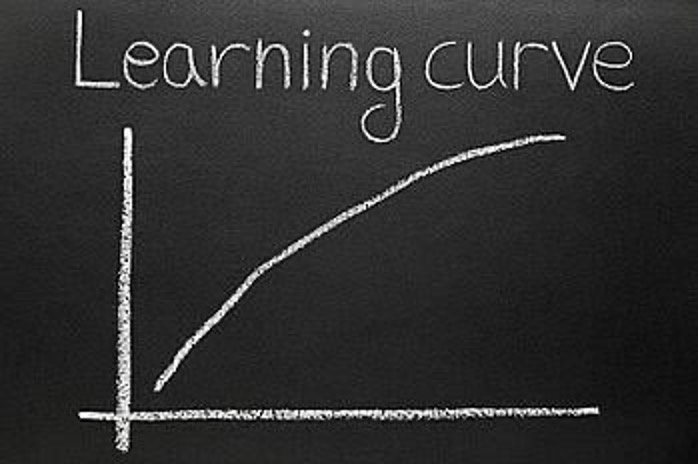What’s your leadership learning curve?
Business pop-psychology and motivational speakers make constant comparisons between management and leadership, the prevailing opinion being that management is a tactical enterprise, while leadership is a strategic one. Management is keeping the trains running. Leadership is deciding where to lay the tracks. To manage well, one simply needs a meticulous eye for detail, a calendar, a clock, and the discipline, tact, and grace to follow up on expectations and hold people accountable. Leading well is another case entirely. Leadership drives a strategy toward achieving a vision, but it’s more lofty than just tracking the achievement of goals. Effective leadership cares for employees, and not just their contributions. Good leadership realizes that employee well-being is inextricably linked to employee job satisfaction, productivity, and longevity with a company. It’s the philosophy of the thing, the intention, and the impact.
I’ve been in some type of service or support for 24 years, and leadership for 20 of that. Working with people gifted me with the realization that relationship and connection are what matter most to me in life. Leading people, somewhat surprisingly, gifted me with the most intimate knowledge about myself. As I’ve continued in my leadership journey, I now understand that self-awareness is the most critical tool a leader can possess. Our self-awareness is the shaping of our lens, to help us see more clearly. And the more clearly we can see ourselves contextualized in the landscape of our experience, the more clearly we can experience, understand, and interpret the needs of those we serve.
Perhaps the most notable realization about myself is that my personality has a 60-day learning curve — and though it was business that enlightened me to this fact, for the first two months that any new person in my life is getting to know me in work, life, love, business, etc., they pretty much think I’m full of sh*t. So pervasive is this response, my step-parents have both admitted to feeling this way about me even as a child, as well as countless friends, and partners. I’m sure my own infant child would have been like “Who is this lady?” had they been able to speak.
What does it mean that my personality has a 60-day learning curve? It means that most people in the first two months of knowing me, believe my behavior is unrealistic and inauthentic, and just have a hard time taking me seriously. We are all locked into our own perceptions and I am apparently a unique combination of traits the likes of which most people have not yet encountered. I have grown accustomed to baffling and unsettling people. Things people do not believe about me upon first meeting me include, but are not limited to:
I am this happy. Sadness and anger, while still my longtime friends, are no longer my daily visitors.
I am this interested in you and your life. I hate small talk - I think it’s a waste of oxygen.
I am going to keep my word, and/or do what I believe is right, even if it doesn’t turn out well for me, and sometimes even very badly.
I am willing to do whatever I would ask of others. I enjoy shared tasks. Even the gross ones.
I do run to conflict. If there is something lurking in the shadows or living in the realm of the passive, I will actively bring it to light.
I love that I have these qualities, and I accept the fact that 60 days is about my speed of trust. It’s usually in this amount of time that something unexpected or unfortunate happens, and people get to see these qualities of mine in action when things get hard. These are qualities that are uncompromisable, because they are not about my leadership, but my life. As I’ve gotten older, I find I cannot lead where I am not aligned with the overall vision, values, and the path toward achieving them. Good leadership must be authentic, and I cannot lead toward something I can’t believe in. To lead well, in my experience, one must exercise every muscle, fiber, and sinew, employ every emotion, develop deep understanding of myriad combinations of lived experiences and circumstances, with oceanic capacity for compassion and empathy, the courage to hold onto a vision and maintain footing in the face of fear and doubt, and the wisdom to know the surest path forward to achieve the best possible outcome. This is about knowing and understanding people, ourselves most of all.
What is your leadership learning curve? Your speed of trust? How long does it take for people to really get to know you?
What are the things that are true about you all the time even when no one is looking? What would people find difficult to believe about you if they knew the truth?
What are the values upon which you build your life? Your leadership? What, for you, is beyond compromise? How will you always show up?
Knowing your team and your business is important, but leadership (and life) starts with knowing yourself, and being willing to accept who you are, what you bring to the table, and how you can leverage it to the greatest advantage toward your purpose. Being a leader is inherently about you, but it is not for you. It’s for those who depend on you to share where we are headed, all the amazing reasons why, and how we plan to get there.
Leadership takes vulnerability, and the bravery to be the first to journey over the mountain of our own complexity, and find ourselves, and our ability to truly relate to and connect with others on the other side.
